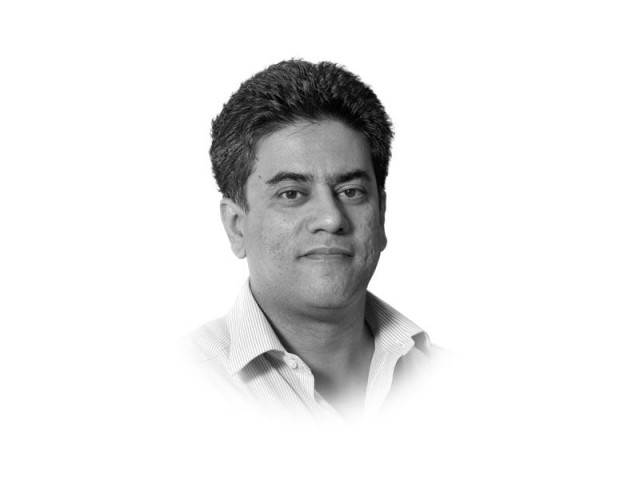The killing fields
The writ of the state continues to be challenged in Karachi, the last frontier in the war against militancy.

The proceedings as well as the comments of the learned judges should shed some light on what ails the city and its corrupt and inept administration. The SC has taken to task the city’s law enforcement administration, currently in the hands of an inspector general of police and a DG Rangers who both insist that all is well. The proceedings have laid bare the abuse of power and cluelessness of our civil and political administration to work towards ensuring peace in Karachi.
We have heard how billions of our money is spent by President Asif Ali Zardari on his personal security, including the state encroachment of a main city boulevard, so that his personal house can remain safe. We see how our police flouts their own rules — many cars driven by police officials have no number plates.
I am reminded of a time when an active member of civil society was called by then police chief Shoaib Suddle to explain some of the problems the city’s traffic faces. This courageous man, who will remain unnamed, said that charity begins at home and that the city’s main police officers are driving in cars that have illegal number plates and tinted glasses. Some of the cars, he added, are also stolen. The man who protested the most on these comments is today the police chief.
The Sindh home department and its shenanigans have also come to light. How are officials enjoying an army of guards and countless official facilities while police stations and government offices struggle to find money to meet legitimate expenses? In the backdrop of these proceedings, the killings in Karachi continue. Senior members and activists of the ANP as well as members of the Pakhtun community (which we are reminded ad nauseum are larger in number in Karachi than in Peshawar) are being targeted. What we are not hearing is how many people who opposed religious extremism and as a consequence fled to Karachi are being killed as well as those who refuse to pay protection money. Karachi is the last frontier in the war against religious extremism and militancy. And so far, the writ of the state continues to be challenged.
It was at the Sindh Governor’s House where I asked then prime minister Yousaf Raza Gilani why the government was not taking action against public hate speeches by leaders of banned religious organisations and why no notice was taken against those who threatened supporters of Governor Salmaan Taseer. With a straight face prime minister Gilani said that the only hate speech he had heard had come from outside the country.
That is why I wonder when President Zardari tells a foreign audience how difficult it was to find a lawyer for Governor Taseer. Some things simply don’t make sense. And to my mind, the government of “democracy-is-the-best-revenge” seems to be giving ground every day.
In all this, the Malala incident comes to mind. The MQM has called for a referendum asking people whether they want a Pakistan that the Quaid-e-Azam envisaged or a Pakistan run by the Taliban. To give them credit, theirs is the only party that has spoken publicly against religious extremism. In response, the Taliban has declared war on the MQM and threatened to kill its leaders.
The government has, predictably, remained silent. The apologists of the Taliban have come up with a counterargument. They ask why so much hue and cry is being raised about one child when every day, so many children die in drone attacks. Some even say that the whole thing is a drama staged to gain world attention. The only good, if at all, that has come out of the Malala attack has been how this innocent and brave true daughter of Pakistan has gained support from all over the world. The public show of support should be a source of strength for us. In response, our reluctant fundamentalists continue to cause doubt and sow fear.
One can only hope for a more focused approach on how to deal with terrorism and extremism. So far, we have only seen confusion.
Published in The Express Tribune, November 5th, 2012.













COMMENTS
Comments are moderated and generally will be posted if they are on-topic and not abusive.
For more information, please see our Comments FAQ